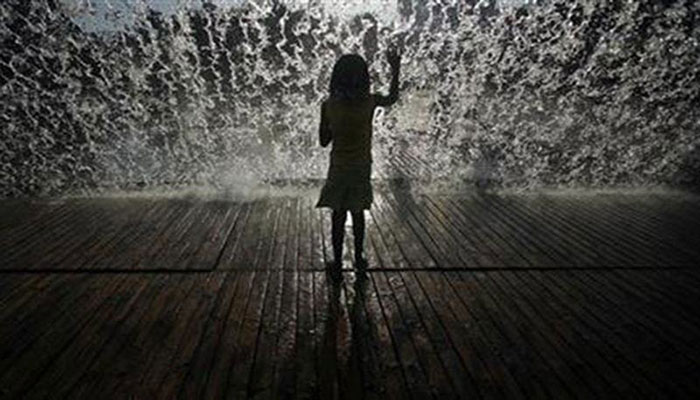Eight-year-old rape victim gets justice as court convicts father
Recently, a sessions court in Karachi has sentenced a man to 14 years in prison after he was found guilty of raping his eight-year-old daughter a couple of years ago. According to Cruel Numbers 2020, eight children get sexually abused every day in Pakistan, while the conviction rate in such cases is less than three per cent. Of all these, reportage of the incest is a rare sight and a painful process explicitly for the victims and for the naked eyes.
Let’s take a stride through the trial of this case to understand it.
The incident
On Thursday, March 7, 2019, Zakiya*, a young maid, was at work. Her three children returned home from their day school in the evening. Their father, Shahid, welcomed them. He sent his two younger sons to play outside, locked the door and raped his daughter, Gulshan*.
When his wife returned, she found the girl hiding and crying in the bathroom. She told her mother of pain in her legs. When Zakiya inquired further, the victim narrated her ordeal.
The mother fought with her husband who kept denying the accusation as the children watched and cried. Zakiya then took Gulshan to Jinnah Postgraduate Medical Centre (JPMC) for treatment.
The investigation
The doctors found that the girl was subjected to vaginal and anal intercourse, after which the matter was referred to police. It took a week for police to register an FIR against Shahid on the complaint of his wife.
A probe was launched as the investigation officer quizzed the accused and the complainant, collected swabs for DNA and chemical analyses as well as seized the clothes of the victim.
Concluding their investigation, the police charge-sheeted the husband for rape and unnatural offence. When the suspect was indicted, he pleaded not guilty, saying that he was falsely implicated in the case by his wife because he had caught her cheating on him with another man in their house.
Shahid told the court that when he confronted his wife, she used the false allegation of incest against him to cover her infidelity. The trial began then.
The trial
Asiya Munir has been a lawyer for the past 18 years, currently working with NGO War Against Rape (WAR). She represented Zakiya and Gulshan in the case.
In an interview with The News, she said, “First of all, nobody in our society tends to believe incest cases, not even the judges. They think that these all are made-up stories. In this hostile and harassing environment, proving your case becomes a tremendously difficult job.” The worst part of it, she added, was standing to the leering looks and shameful questions during the arguments in the courtroom.
“I have seen these mother and daughter sitting together like glued in a corner of the courtroom getting humiliated by staffers and taunted by the defence lawyers,” Asiya said, explaining that this was the reason she requested for an in-camera hearing to record the statement of the victim.
The statement
The examination-in-chief of the victim took place inside the chamber of the judge. Except the victim, judge, and complainant’s and defence lawyers, no one was present in the room.
After the victim narrated the crime, the defence lawyer was allowed to cross-examine her. “You [the victim] are lying because your mother has told you to,” the lawyer representing her father asked her. She responded, “My mother has not taught me to lie.”
“Your mother has an affair with someone,” the lawyer threw another question. Her attorney objected to it but the victim said, “No, my mother cleans the washrooms of others for us. She is not lying nor am I.”
Defence arguments
The defence lawyer put these questions and arguments before the judge: In the case of rape, why is there no violence mark or injury found on the victim? Why was the FIR lodged a week late? Why were the clothes of the victim handed to the police 19 days after the incident? Why didn't the complainant get a letter from the concerned police station before going to the JPMC? The complainant is having an extramarital affair and the person should also be summoned by the court! The order
In the judgment issued on July 17, the East additional district and sessions judge, Javed Ahmed Phulpoto, observed that as far as the allegation of the affair was concerned, the accused had not been able to produce even his own relatives to second his stance. The judge termed this allegation an attempt by the accused “to malign the complainant and gain sympathy from society to get away from his crime.”
The judge remarked that the absence of torture marks was not enough proof to suggest that the crime did not take place and referred to the Supreme Court’s judgement in Ghulam Sarwar versus The State PLD 1984 SC 218. He added that “solitary testimony was enough for conviction if it transpired conviction” as held in Nasreen versus Fayyaz Khan and another PLD 1991 SC 412.
“The statement of the victim is straightforward and [she] narrated the entire incident in a very innocent and natural manner and the defence failed to establish that there was any exaggeration in her statement,” the judge observed, adding that the victim’s, the complainant’s and the investigators’ testimonies were unshakeable and so was the medical evidence which proved the offence on the accused.
Unnoticed rapes
In the first half of 2021, rape cases have surged up to 38 per cent across Sindh, according to data shared by WAR Programme Officer Sheraz Ahmed. His NGO supported Gulshan and her mother to win their case. He said that since June 2021, the Sindh police had registered 193 cases of rape and 45 of gang rape but these figures were only the tip of the iceberg as the actual figures were much higher than the reported ones.
“Underreporting of cases can be attributed to various social issues, such as lack of awareness amongst survivors/victims about their rights or actual procedure, stigma, fear and lack of trust including biased, judgmental and discouraging attitudes in the relevant authorities of the criminal justice system or [it] might be that the reliable data is missing,” a statement from the NGO read.
Uneasy road
Asiya believes that the road to justice in rape cases is even painful. “If you’re a victim and go to report your case. The duty officer, mainly men, will get under your skin by asking absurd questions not because they are looking for the truth but they generally don't believe you as a woman and this is a patriarchal society with gender biases,” she remarked, adding that the next steps were more humiliating for the victims.
“There are only three places in Karachi — JPMC, Dr Ruth Pfau Civil Hospital and Abbasi Shaheed Hospital — where you can go for medico-legal examination and female doctors are hardly any and sometimes they are not available in the night shifts,” the lawyer said, adding that in some of these places, “they still do ascertain the occurrence of rape by the one finger or two fingers [method].”
‘Sensitise stakeholders’
WAR has recommended the state to address the frontline stakeholders such as police, prosecutors and judges, medico-legal officers, media, academics and community members who need to be sensitised and re-sensitised through refresh courses to identify, protect and effectively respond to ensure safety of the vulnerable segments of society.
WAR also calls for the relevant authorities to carry out fast trials to ensure speedy justice so that the cases of sexual violence must be decided at least within six months to a year.
* Names changed to protect identity
-
 Chris Hemsworth Gets Candid About Daughter’s Drawings That Inspired Several Of His Tattoos
Chris Hemsworth Gets Candid About Daughter’s Drawings That Inspired Several Of His Tattoos -
 UK To Experience Rare 'Blood Rain' On Tuesday Feb. 24, 2026: Know Every Detail
UK To Experience Rare 'Blood Rain' On Tuesday Feb. 24, 2026: Know Every Detail -
 Maria Shriver Shares Heartbreaking Reminder After Eric Dane's Death: 'Next Week Isn't Guaranteed'
Maria Shriver Shares Heartbreaking Reminder After Eric Dane's Death: 'Next Week Isn't Guaranteed' -
 Andrew Mountbatten Windsor Gets New Moniker After Losing ‘Prince’ Title
Andrew Mountbatten Windsor Gets New Moniker After Losing ‘Prince’ Title -
 Jack Black Shares Unseen Moments With Tanya Haden: 'My Love'
Jack Black Shares Unseen Moments With Tanya Haden: 'My Love' -
 Shamed Andrew Made Taxpayers Fund Personal ‘massages’
Shamed Andrew Made Taxpayers Fund Personal ‘massages’ -
 What Could Be Nick Reiner's Fate After Pleading Not Guilty Parents’ Murder Case?
What Could Be Nick Reiner's Fate After Pleading Not Guilty Parents’ Murder Case? -
 Princess Kate Talks About 'hard Conversations' With Kids Amid Andrew Drama
Princess Kate Talks About 'hard Conversations' With Kids Amid Andrew Drama -
 Prince William Mocked For Being ‘most Reluctant’ King-in-waiting
Prince William Mocked For Being ‘most Reluctant’ King-in-waiting -
 Prince William Makes Rare Admission After Andrew Arrest
Prince William Makes Rare Admission After Andrew Arrest -
 ‘Got A Lot Of People Gunning For Me’: Trump Makes First Comments On Mar-a-Lago Intruder
‘Got A Lot Of People Gunning For Me’: Trump Makes First Comments On Mar-a-Lago Intruder -
 What Countries Have A Say In Andrew Removal From Line Of Succession?
What Countries Have A Say In Andrew Removal From Line Of Succession? -
 How Did Luci4 Die? Police Probes 'BodyPartz' Sudden 'suspicious' Death
How Did Luci4 Die? Police Probes 'BodyPartz' Sudden 'suspicious' Death -
 King Charles Criticized By Princess Anne Over Andrew Drama
King Charles Criticized By Princess Anne Over Andrew Drama -
 Kelly Osbourne Hits Back At 'absolutely Devastating' Body Shaming Comments
Kelly Osbourne Hits Back At 'absolutely Devastating' Body Shaming Comments -
 Hailee Steinfeld Details Preparations Ahead Of Welcoming First Kid With Josh Allen
Hailee Steinfeld Details Preparations Ahead Of Welcoming First Kid With Josh Allen




